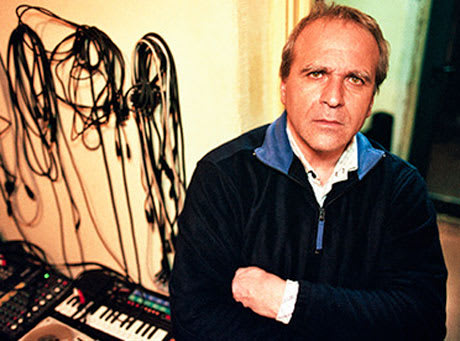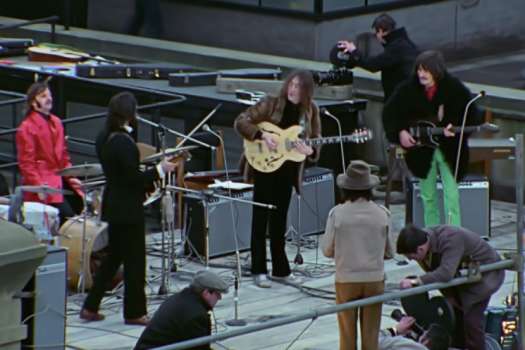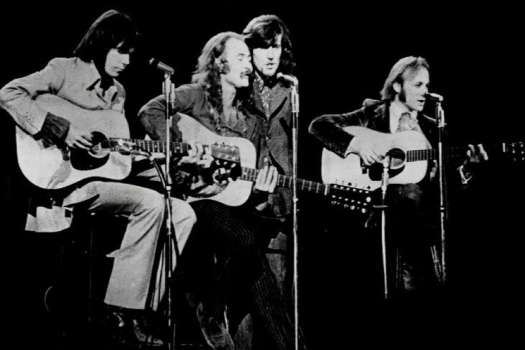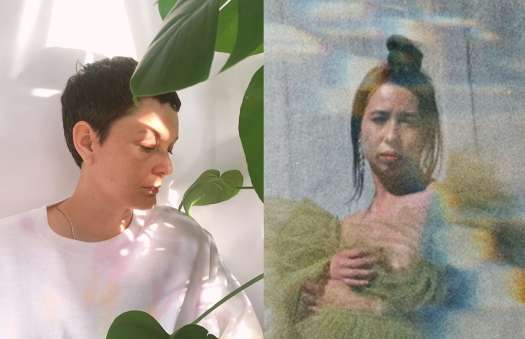The Lost Tapes was one of 2012's most revelatory reissues, uncovering the genre-defying output of Romanian psych-electronic trailblazer Rodion Rosca, who founded Rodion G.A. in 1975. While The Lost Tapes compiled a cross-section of Rosca's inimitable synthesis of Kraut, psych, progressive and synth experimentation recorded at various points in the group's history from 1978 to 1983, the just-released Behind the Curtain: The Lost Album (out now on BBE) is the first complete album from Rosca, and its immersive sounds seem even more impressive given his DIY production ethic and the oppressive cultural environment from which it emerged.
"I had no special equipment for recording," Rosca tells Exclaim! of his recording process. "In 1969, I borrowed a reel-to-reel tape recorder: a Tesla Sonet Duo Magnetophone with the sole purpose of recording my guitar on it.
"I then came up with the idea to record my voice as well, but I didn't know how to do that with only one tape recorder. Later on my mother bought me my own tape recorder and with two of these machines, I started making multitrack recordings. One tape recorder was playing the guitar track I had recorded earlier while the second one was recording simultaneously my vocals and the first tape recorder playing the guitar track. After that I would record again adding another voice or guitar part and so on until I would finish a song. It was quite empirical and difficult, but it was the only way I knew to do multitrack recordings at the time."
Those captivated by the more vibrant moments of The Lost Tapes may be startled by its successor's darker moments such as "Cosmic Game" and "Dans Macabru," which reflect Rosca's sombre mind state at the time of their recording in the early '90s, when he had all but given up on music following his mother's death in 1987.
"The songs on The Lost Tapes are among the first compositions I wrote as a teenager, when I wanted to get the attention of the fairer sex through my creations," confesses Rosca. "They have a much more optimistic aura. More than half of the songs on Behind the Curtain were written in 1992 and when music was no longer a new thing to truly rev me up. Probably due to my age and maturity in approaching songwriting, I was more concerned with dark harmonies, which were full of rebellion — possibly expressing my desire for unfettering from all that surrounded me."
Decades after they were first recorded, listeners are finally catching up to Rosca's left-field and long-thought-lost sounds. Sadly concurrent with his re-discovery (which has included concert appearances and a lecture at Red Bull Music Academy) is the revelation that Rosca has liver cancer, yet he remains positive and humble in the face of his new acclaim.
"I am overwhelmed by the situation," he says. "I am not yet accustomed to this status and I cannot pretend I am some smug 'star.' I am very happy to see that the public and the fans enjoy my new songs. They have no idea that I wrote these songs for them and I was always wondering while I was writing them — what would they think when they listen to my song?"
"I had no special equipment for recording," Rosca tells Exclaim! of his recording process. "In 1969, I borrowed a reel-to-reel tape recorder: a Tesla Sonet Duo Magnetophone with the sole purpose of recording my guitar on it.
"I then came up with the idea to record my voice as well, but I didn't know how to do that with only one tape recorder. Later on my mother bought me my own tape recorder and with two of these machines, I started making multitrack recordings. One tape recorder was playing the guitar track I had recorded earlier while the second one was recording simultaneously my vocals and the first tape recorder playing the guitar track. After that I would record again adding another voice or guitar part and so on until I would finish a song. It was quite empirical and difficult, but it was the only way I knew to do multitrack recordings at the time."
Those captivated by the more vibrant moments of The Lost Tapes may be startled by its successor's darker moments such as "Cosmic Game" and "Dans Macabru," which reflect Rosca's sombre mind state at the time of their recording in the early '90s, when he had all but given up on music following his mother's death in 1987.
"The songs on The Lost Tapes are among the first compositions I wrote as a teenager, when I wanted to get the attention of the fairer sex through my creations," confesses Rosca. "They have a much more optimistic aura. More than half of the songs on Behind the Curtain were written in 1992 and when music was no longer a new thing to truly rev me up. Probably due to my age and maturity in approaching songwriting, I was more concerned with dark harmonies, which were full of rebellion — possibly expressing my desire for unfettering from all that surrounded me."
Decades after they were first recorded, listeners are finally catching up to Rosca's left-field and long-thought-lost sounds. Sadly concurrent with his re-discovery (which has included concert appearances and a lecture at Red Bull Music Academy) is the revelation that Rosca has liver cancer, yet he remains positive and humble in the face of his new acclaim.
"I am overwhelmed by the situation," he says. "I am not yet accustomed to this status and I cannot pretend I am some smug 'star.' I am very happy to see that the public and the fans enjoy my new songs. They have no idea that I wrote these songs for them and I was always wondering while I was writing them — what would they think when they listen to my song?"




